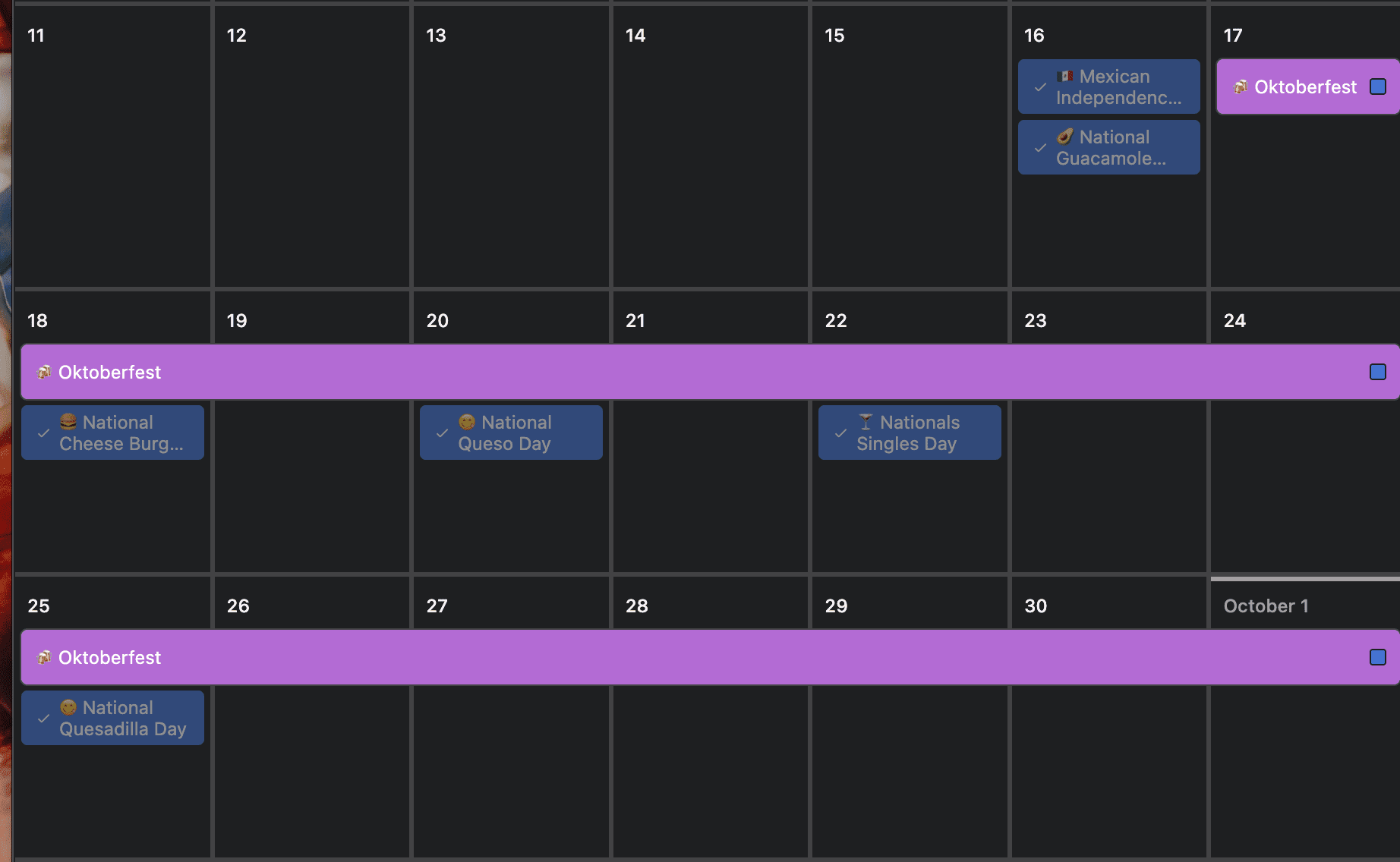It’s a new year, and you likely have new business goals for 2023. But do you have a plan for how to achieve those goals? Do you want to not only achieve your goals but crush them this year? A well-planned marketing calendar can help.
Why Your Business Needs a Marketing Calendar
A marketing calendar is essential for any business looking to plan and execute a successful marketing strategy. It allows you to map out your content and promotions in advance, helping you stay organized and on track to achieve your goals. With a marketing calendar, you can ensure that your efforts are aligned with key dates and events and that your content is always relevant and engaging. It also helps you to measure your marketing efforts and adjust your strategy.
Not having a marketing calendar can lead to missed opportunities, ineffective campaigns, and confusion. A marketing plan is vital to staying ahead of the competition and achieving your business goals.
How to Plan an Effective Marketing Calendar
So now you know why you need one, here are some tips for planning an effective marketing calendar:
-
Set clear goals and objectives
Before you begin planning your marketing calendar, it is essential to have a clear understanding of what you want to achieve. Your goals might include increasing brand awareness, driving sales, or growing your customer base. Once you have set your goals, you can begin to plan a marketing strategy to help you achieve them.
When setting goals, be sure to develop SMART goals. These criteria ensure that the goals set are clear, quantifiable, realistic, and have a defined timeframe for completion.
- Specific: For a goal to be effective, it needs to be clear and specific about what you want to accomplish.
- Measurable: The goal should allow you to track your progress and include metrics to quantify your success.
- Attainable: The goal needs to be realistic and achievable.
- Relevant: A relevant goal relates to your broader business goals.
- Time-bound: You should have a goal deadline with realistic timing.
-
Consider your target audience
Your marketing calendar should be tailored to the needs and interests of your ideal customer. Consider your audience’s demographics, psychographics, and behavior, and plan your campaigns and promotions accordingly.
Knowing your audience allows you to create content that specifically resonates with them and encourages them to take the desired action, whether it be signing up for a newsletter, sharing a social post, or making a purchase.

-
Use a mix of marketing tactics
A marketing calendar should include a mix of tactics because it allows for a more comprehensive and well-rounded approach to reaching potential customers. Different tactics, such as email marketing, social media campaigns, and paid media, can appeal to different audiences and target specific goals.
Using a mix of tactics also helps to mitigate the risk of relying on a single strategy, which could be affected by changes in the market or consumer behavior. Additionally, it allows tracking the performance of each tactic and adjusting it accordingly to optimize the results. Overall, a mix of tactics in a marketing calendar can lead to better results and a more successful marketing strategy.
-
Schedule around key dates
It’s a good idea to schedule your marketing campaigns and promotions around critical dates, such as holidays, industry events, and product launches. By planning your campaigns around these dates, you can take advantage of the increased attention and interest that they generate.
For example, if you have a restaurant that serves burgers, you can create hype and increase sales by planning promotions around fun holidays like #NationalCheeseburgerDay.

-
Make use of analytics
Analytics can help you track the effectiveness of your campaigns and promotions and make data-driven decisions about future marketing efforts. Your analytics can track important metrics such as website traffic, conversion rates, and social media engagement. You can then use this data to inform your future marketing plans.
If one tactic was wildly successful, consider allotting more resources to that tactic for future marketing campaigns. On the other hand, if a specific tactic falls flat, there is no need to waste time on one that did not work in the past.

-
Flexibility is key
Marketing plans are subject to change, so keep your calendar flexible. Stay open to new ideas and be ready to adjust your plans when needed.
One of the most talked about marketing tactics still today was when Oreo won the Super Bowl marketing in 2013 with a last-minute tweet that capitalized on the game’s blackout that year. Their flexibility allowed them to tap into a cultural moment in real time, and the brand instantly went viral.
-
Review and adjust
Regularly reviewing and adjusting your marketing calendar is important because it allows for flexibility and adaptability in response to changes in the market, consumer behavior, and the performance of previous tactics. Without regular review and adjustment, a marketing calendar may become outdated and fail to reach its target audience effectively.
Additionally, reviewing and adjusting the calendar allows for identifying and correcting any underperforming tactics and incorporating new and innovative strategies.
Take a look back at your marketing goals from 2020, and you will likely understand how quickly and unexpectedly business goals can change and how important it is to have the ability to adjust.
Final Thoughts
Creating a marketing calendar can initially seem daunting, but with these tips in mind, you can develop a plan to help you achieve your marketing goals. Remember to stay flexible, track your progress and make adjustments as needed, and you’ll be on your way to a successful marketing calendar that will help you crush your goals this year.
If it sounds too overwhelming to manage on your own, connect with our marketing strategy experts today to get a custom marketing calendar tailored to your business goals and objectives for 2023.







